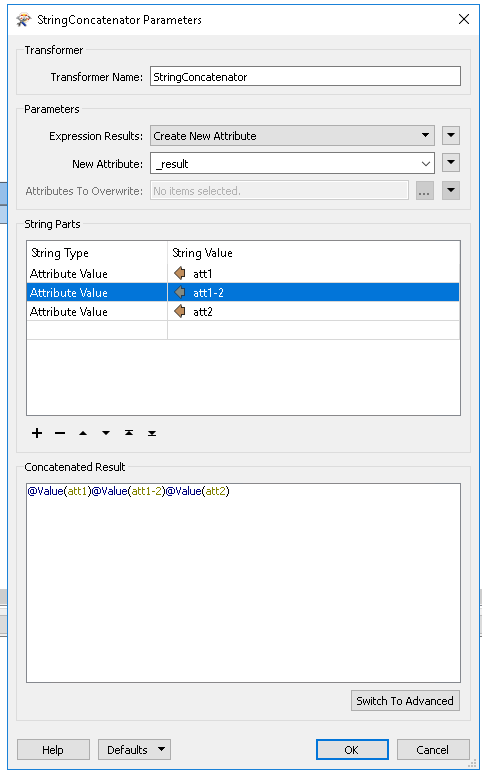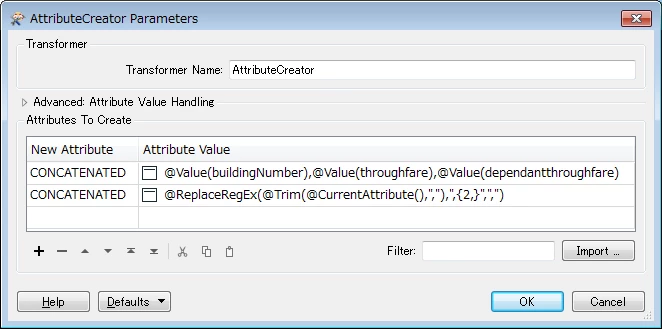I have been given the following python code but get errors every time i try to run it, anyone know what is wrong...
import fmeobjects
def FeatureProcessor(feature): to_concatenate = ("buildingNumber", "throughfare", "dependantthroughfare")
# Modify as needed
join_string = ","
# Modify as needed
result = join_string.join([feature.getAttribute(attr) \\
for attr in to_concatenate if feature.getAttribute(attr)])
feature.setAttribute("CONCATENATED", result)













